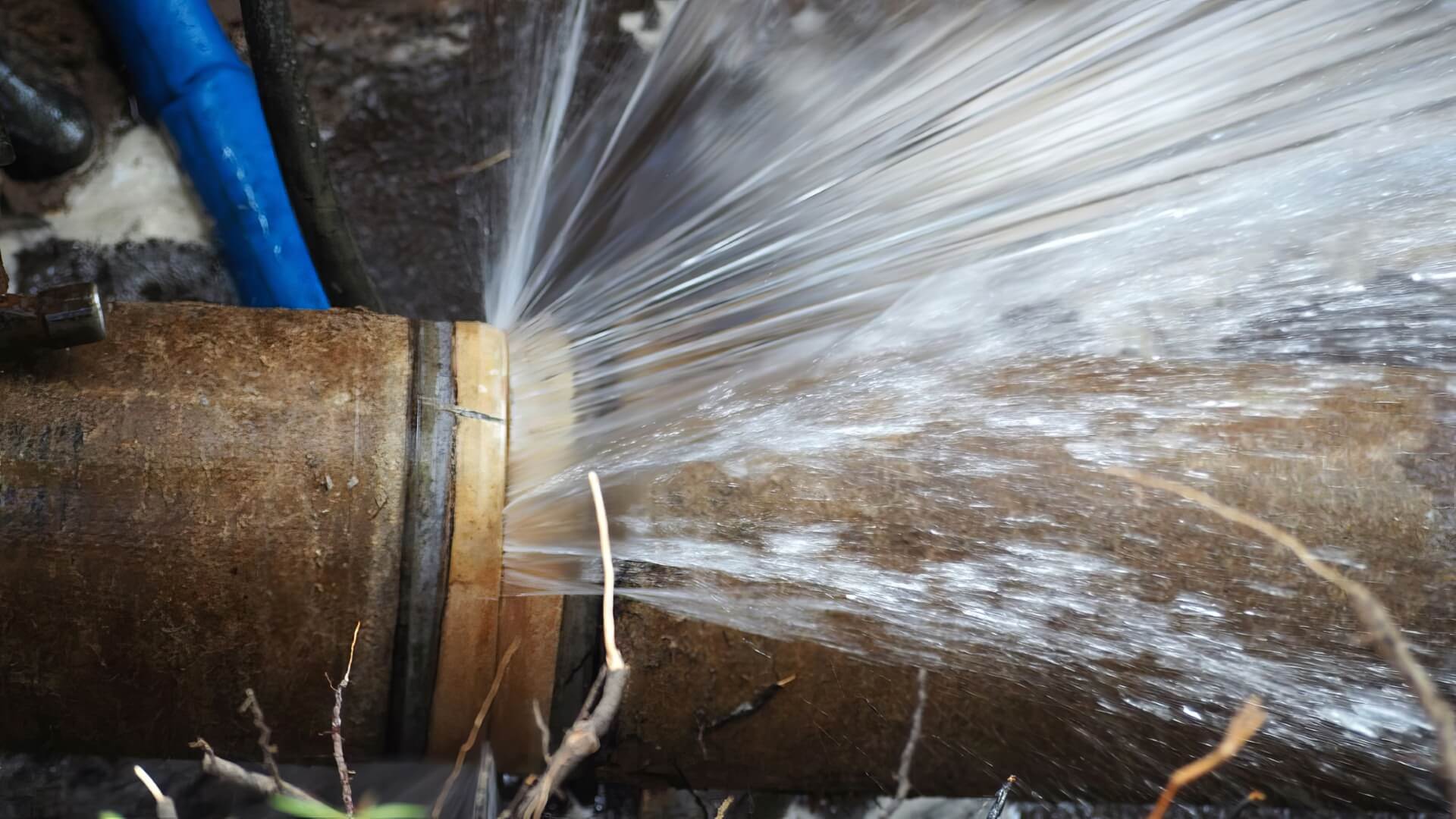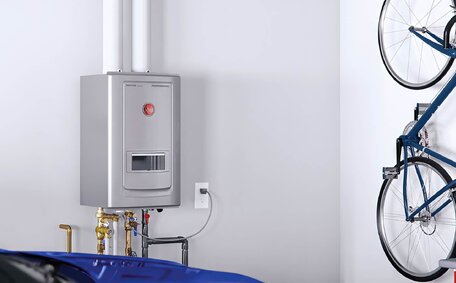When it comes to heating water for your home, two of the most common options are gas and electric hot water systems. In this guide, we’ll provide an in-depth comparison of gas vs electric hot water to help you determine the best option for your household.
As a homeowner, choosing the right system can have a significant impact on your energy costs, efficiency, and environmental footprint.
Understanding the differences between gas and electric systems is an important decision for any homeowner.
The type of hot water system you choose affects your monthly energy bills, the flow rate you get, and your carbon emissions. The type of hot water system you choose affects your monthly energy bills, the flow rate you get, and your carbon emissions.
We’ll look at how gas and electric systems work, compare installation and running costs, hot water delivery, efficiency, environmental impact and other factors. With the pros and cons laid out, you’ll be in a better position to decide which type of hot water system makes the most sense for your home and budget.
Overview of Electric and Gas Hot Water Systems
Electric and gas hot water systems are the two main options for heating water in most homes. Here is a quick overview of how each system works:
Electric Hot Water Systems
Electric hot water systems use electricity to heat water in an insulated storage tank. The water is heated by electric heating elements immersed in the tank.
Thermostats control the temperature. There are a few types of electric systems:
- Storage tank systems have one or more heating elements in a tank that always holds a supply of hot water.
- Tankless or instantaneous systems heat water as it flows through the unit, so there is no storage tank.
- Heat pump systems are the most energy efficient electric option. They use a heat pump to extract heat from the air and transfer it to the water.
- Solar electric systems use solar panels and electricity to heat water during the day.
Gas Hot Water Systems
Gas systems use natural gas or LPG to heat the water. There are also a few types of gas hot water systems:
- Storage tank systems where gas burners or heat exchangers heat a tank of water.
- Tankless or instantaneous gas systems heat water on demand without a storage tank.
- Solar gas systems preheat water during the day and use gas as a backup.
In summary, both electric and gas systems can provide hot water via a storage tank or tankless method. The main difference is the energy source used to heat the water.
Upfront Cost Comparison
When it comes to upfront costs, gas hot water systems tend to be less expensive than electric. Here is a quick cost comparison:
- A basic gas storage tank system costs $800-$1,500 installed.
- A basic electric storage tank system runs $1,000-$2,000 installed.
- Tankless gas systems start around $2,000 installed.
- Tankless electric units start around $2,500 installed.
There are a few reasons gas systems generally have lower upfront costs:
- The units themselves cost less than electric systems.
- Gas line connections in most homes are simpler, requiring less labour.
- Any electrical upgrades needed for an electric system add to costs.
However, other factors like energy rebates can affect overall costs. Maintenance may also be required sooner for gas units. Get professional quotes to compare total costs for your specific situation.
Breakdown of Electric System Costs
The costs of an electric hot water system can add up. Here is a breakdown of typical costs:
- Unit Price: Basic electric storage tank units range from $800 - $1500 depending on size, fuel type and features. More expensive heat pump and solar electric units can cost $2000 - $6000.
- Installation Labour: Plumbing labour will generally cost $50 - $100 per hour. Installation may take 2 to 5 hours, for $100 - $500 total.
- Electrical Work: Upgrading or installing new circuits and wiring if needed typically adds $500 - $2000.
- Permits and Inspections: Building permits and inspections can cost $200 - $500 depending on your area.
- Other Parts: Extra costs may include new vents, valves, insulation and mounts for $50 - $500.
In total, a basic electric storage tank water heater could run $1500 - $2500 installed. More complex systems with extra electrical work or solar panels may cost upwards of $4000 - $8000 installed.
Get multiple quotes to compare exact costs for purchasing and installing an electric system in your home.
Breakdown of Gas System Costs
Gas hot water systems also come with a range of costs. Here’s what to expect:
- Unit Price: Basic gas storage tanks start at $600 - $1200. More complex systems can be $1500 - $4000.
- Installation: Plumbing installation ranges from $50 - $100 per hour. Most basic installs take 1 - 3 hours.
- Gas Line Work: Simple connections to existing lines are often included. Adding new gas lines costs $500 - $2000.
- Permits and Inspections: Expect $200 - $400 for plumbing permits and inspections.
- Other Parts: Valves, vents, insulation may add $50 - $200 in parts.
The total installed cost for a basic gas storage tank water heater starts around $800 - $1500. Higher-end systems with more complex installs can be $2500 - $6000.
Compare quotes from local, licenced plumbers to understand true costs for your situation.
Operating Cost Comparison
When comparing operating costs, gas systems generally cost less to run than electric. Key factors include:
- Gas is currently cheaper per unit of energy than electricity.
- Gas systems tend to heat water more efficiently than electric models.
- Electric heat pump units are the most efficient electric option.
Estimates indicate gas costs about $150 - $300 annually to run a typical unit. Electric storage tank heaters average $300 - $600. More efficient electric heat pump systems run about $200 - $450 per year.
However, utility costs vary. Compare current local gas versus electricity prices. Run the numbers with quotes from plumbers to determine actual operating expenses based on your household usage.
Efficiency Comparison
When it comes to energy efficiency, gas and electric systems have different strengths.
Gas systems heat water faster than electric, so less energy is wasted. They have efficiency ratings around 0.75 EF (energy factor).
Electric storage tank models have EF ratings of 0.8 to 0.95. Heat pump units are most efficient at 2.0+ EF.
However, gas systems lose some heat through flue gases. Electric heat pumps move heat rather than generate it.
Overall, gas systems tend to be more efficient for heating water itself. But electric heat pumps are the most efficient use of raw energy.
To choose the right system, weigh efficiencies against your local energy costs. Both options can be cost-effective with the right setup.
Capacity and Flow Rate Comparison
The capacity and flow rate of a hot water system determine how much hot water it can supply at once.
Capacity refers to the total volume of hot water available in the tank or unit. For storage tank systems, gas and electric units typically range from 20 to 80 gallons. Tankless systems have unlimited capacity.
Flow rate measures how many gallons per minute (GPM) come out of your faucets. Gas systems often have higher flow rates of 3-6 GPM. Electric flow rates go up to 4 GPM, or more with multiple heating elements.
Higher capacities and flow rates are ideal for larger households. Make sure to choose a system that meets your household’s hot water demands.
Environmental Impact Comparison
When it comes to environmental impact, electric hot water systems are generally seen as more eco-friendly than gas.
Gas systems directly burn fossil fuels, releasing carbon emissions. Electric systems have no onsite emissions, but the electricity used still creates some upstream carbon pollution.
However, heat pump electric systems are very efficient and have minimal emissions. Solar electric is completely renewable if you produce your own power.
At end of life, electric system parts are more recyclable than gas tanks and lines. But both have some recyclable and non-recyclable components.
Overall, efficient electric and solar electric systems are the most environmentally sustainable options. But gas systems are not far behind in terms of green credentials.
Maintenance and Repair Requirements
When it comes to maintenance and repairs, gas hot water systems generally require more frequent servicing than electric systems.
Gas systems should be inspected annually to check the gas lines, burner, flue, and other components. The tank may need draining and sediment removal every 1-3 years.
Electric systems only need draining and anode rod replacement every 2-5 years. Heat pump and solar electric systems have very minimal maintenance needs overall.
However, gas storage tanks tend to last 5-10 years less than electric. The upfront cost of more frequent gas water heater replacement should be factored in.
Overall, gas systems will likely need more repairs and professional maintenance visits over their lifetime. Get quotes to understand the costs in your area.
Choosing the Right System
Choosing between an electric or gas hot water system for your home depends on several factors:
Home Size and Occupants
Consider the number of bedrooms, bathrooms, and occupants. More people or bathrooms require higher capacity and flow. In general, gas provides more hot water for larger homes.
Existing Utilities
Look at whether your home already has gas. Adding new gas lines will increase costs for a gas system. Existing 240V electric capacity favours electric.
Upfront Costs
Gas systems often cost less upfront, though not always. Compare quotes for your situation.
Operating Expenses
In most cases, gas has lower energy and heating costs long-term.
Environmental Goals
Electric systems have lower carbon emissions. Solar electric is 100% renewable.
Balancing these factors will lead you to the right hot water system for your household needs and budget.
Determining Your Household’s Hot Water Needs
Determining the right size hot water system starts with understanding your household’s hot water requirements.
Consider how many people live in your home and their usage habits. More occupants, longer showers, and frequent baths demand higher capacity. Teenagers tend to use more hot water than smaller children.
Also factor in appliances needing hot water like dishwashers and washing machines. Frequent laundering and dishwashing requires ample hot water flow.
Track your water bill usage in gallons. Multiply by 0.2 to estimate gallons of hot water used per day. Size your tank or heating capacity to match.
Allow for future needs. A growing family or additional occupants will increase usage over time. Buy more capacity than you need today for best value.
Available Rebates and Incentives
There are often rebates and incentives available that can reduce the upfront and ongoing costs of both electric and gas hot water systems.
Many energy providers offer rebates of $300 to $1000 for installing certain energy efficient models. Gas companies may offer rebates for gas hot water or appliances.
State and federal governments also have programmes that provide rebates, tax credits, and other incentives for water heating systems and energy efficiency upgrades.
Be sure to research current rebates in your area when choosing a system. Programmes change frequently, so check for the latest incentives to help offset installation and operating costs.
Conclusion
Whether you choose an electric or gas hot water system comes down to your household’s needs and preferences. Gas systems often cost less upfront and have lower operating costs, but need more maintenance.
Electric systems are more eco-friendly, with solar and heat pump options offering energy efficiency. Evaluate costs, efficiency, capacity, environmental impact and other factors before deciding.
For further guidance on choosing the right hot water system for your home, contact the licenced professionals at Quakers Hill Plumbing. Our experts can inspect your current setup, provide quotes for replacement, and help select the ideal system for your situation. Reach out today to get started.






